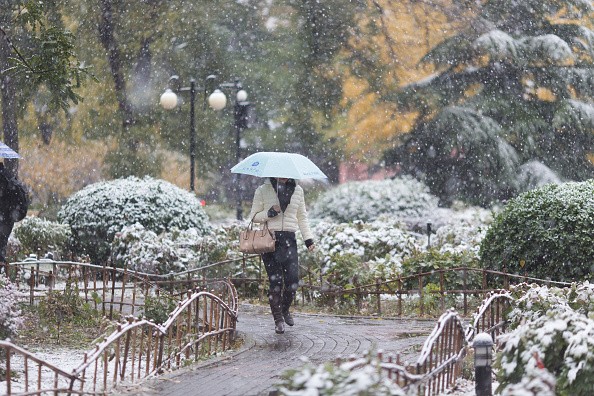An unexpected early snow has blanketed Beijing and other cities in Northern China on Friday, Nov. 6, causing heavy traffic and prompting city officials to start providing heating for residential complexes ahead of schedule.
According to the National Meteorological Center, the areas affected by snowfall include Beijing and neighboring Hebei, Shanxi and Shandong Provinces, as well as the Inner Mongolia region. The snow is expected to continue until Sunday.
The premature snowfall is the earliest in Beijing since a blizzard struck the capital in Nov. 2009.
Zhang Fanghua, chief weather forecaster of the National Meteorological Center, said that the early snow is actually good for the agriculture in the region.
"The snow can provide water to the dry land in Henan and Shandong Provinces, and the low temperatures can kill pests and pathogens that lurk in the land," she said.
However, Zhang warned residents of potential carbon monoxide poisoning when heating their homes.
"People should keep an eye out and ventilate their homes to get rid of carbon monoxide emitted by heating equipment, especially for those who have seniors at home," she added.
Beijing routinely provides heating to residents mid-November, although it can be moved to an earlier date if the temperature drops below 5 degrees Celsius for five straight days. And with weather forecasts indicating the early snow will not cease in four days, Beijing's Environment Sanitation Engineering Group has announced that the heating system for residential complexes will start eight days ahead of schedule to ensure households in the capital have access to heating.
Beijing traffic police said that traffic accidents during the Friday morning rush hour have increased by 30 percent due to the weather, while 50 flights have been cancelled at the Beijing Capital International Airport as of press time.
According to the World Meteorological Organization, the early snowfall may have been a side effect of the recent El Nino phenomenon, the strongest in more than half a century.



























